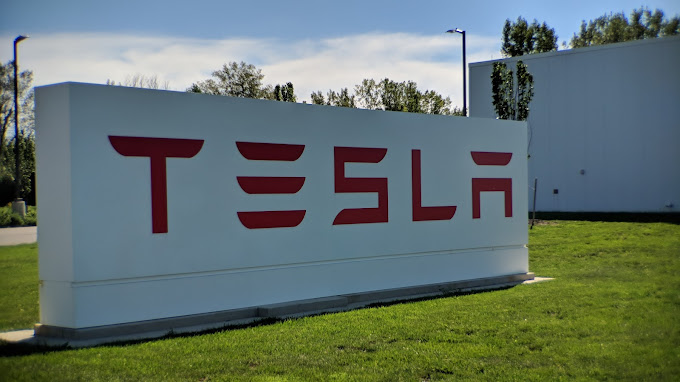Tesla Overhaul: Cybertruck Production Slash and Tariff Turmoil Cloud Future Transformation
Tesla is undergoing significant internal restructuring and revising its business strategy as it faces declining sales, a plummeting stock price, and external pressures from U.S. trade policies. The co

Tesla is undergoing significant internal restructuring and revising its business strategy as it faces declining sales, a plummeting stock price, and external pressures from U.S. trade policies.
The company is slashing Cybertruck production targets due to weak demand and recalls while grappling with disruptions to its Cybercab and Semi production plans caused by President Donald Trump's tariffs on Chinese parts. These challenges are forcing tesla to adapt its operations and rethink its ambitious growth goals.

Slashing Cybertruck Production Targets
Tesla has scaled back its production goals for the Cybertruck, a futuristic all-electric truck launched in late 2023, amid slumping sales and a series of recalls. According to reporters, the company has reduced Cybertruck production lines at its Texas Gigafactory, with some teams cut by more than half. Workers are being reassigned to other lines, notably the Model Y, as Tesla shifts resources to its more popular models.
Cybertruck sales have dwindled significantly. In the first quarter of 2025, Tesla sold just 6,406 units, down from 12,991 the previous quarter. Since its debut, only 46,000 Cybertrucks have been sold—far below expectations. This decline mirrors a broader 13% drop in Tesla's overall vehicle sales during the same period, raising concerns among investors. The company's stock has fallen 43% since Trump's inauguration, though it remains up 54% over the past 12 months.
Quality issues have compounded the problem. Tesla has issued eight recalls in 15 months, including one in early 2025 affecting every Cybertruck sold due to a siding defect and another in February recalling 375,000 vehicles over steering issues. To boost demand, Tesla introduced incentives like lifetime free charging for the $95,000 Foundation Series Cybertruck (for personal use only) and unveiled a cheaper $70,000 rear-wheel-drive model. However, the latter lacks features like air suspension and vegan leather seats, leading analysts to predict deliveries will drop to 20,000 units in 2025 from 37,000 in 2024.
"It feels a lot like they're filtering people out," according to an anonymous employee from Tesla factory, reflecting the operational and morale challenges at the Gigafactory as Tesla prioritizes efficiency over Cybertruck ambitions.
Trump's Tariffs Disrupt Cybercab and Semi Plans
Beyond internal woes, Tesla faces external hurdles from Trump's escalating tariffs on Chinese goods, which have disrupted plans to produce the Cybercab and Semi in the U.S.
According to analysts, Tesla suspended shipments of Chinese components for these models after tariffs rose from 34% to 84%, then to 125%, totaling 145%. While Tesla was prepared to absorb some cost increases, the latest hikes proved unmanageable.
The Cybercab, a robotaxi with no steering wheel or pedals, was set for trial production in October 2025 and mass production in 2026 at under $30,000. The Semi, an electric truck, was slated to ramp up in 2026 to fulfill orders from customers like Pepsi. Both are pivotal to Tesla's growth, with Musk touting them as game-changers. However, the tariff-induced suspension of parts shipments threatens these timelines.
Tesla has spent two years increasing North American-sourced parts to hedge against tariffs, but the rapid escalation has outpaced its efforts. Musk, a free-trade advocate, has opposed the tariffs, arguing they harm global supply chains. Despite his role in Trump's Department of Government Efficiency (DOGE), his appeals to reverse the policy have failed, adding pressure to Tesla's operations.
Strategic Implications
Tesla's adjustments signal a pragmatic shift. Cutting Cybertruck production and reallocating workers aim to stabilize finances amid a sales slump, while the tariff disruptions force a reevaluation of supply chains.
Analysts have long warned that the transformation of Tesla, from EV production to AI-driven automotive and innovative production like Cybercab and Tesla robot, is crucial for the company to navigate through the turmoil. Unfortunately, the current state, both political and production wise, has halted the transformation process of Tesla, bringing significant challenge and shadowing the future trajectory of the company.
Musk remains optimistic, pledging to double U.S. production in two years, but these challenges test Tesla's resilience. As it navigates declining demand, quality issues, and geopolitical tensions, Tesla's ability to adapt will shape its future in an increasingly volatile market.
Disclaimer: The views in this article are from the original Creator and do not represent the views or position of Hawk Insight. The content of the article is for reference, communication and learning only, and does not constitute investment advice. If it involves copyright issues, please contact us for deletion.